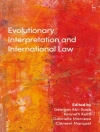This electronic version has been made available under a Creative Commons (BY-NC-ND) open access license. This book presents new theories and international empirical evidence on the state of work and employment around the world. Changes in production systems, economic conditions and regulatory conditions are posing new questions about the growing use by employers of precarious forms of work, the contradictory approaches of governments towards employment and social policy, and the ability of trade unions to improve the distribution of decent employment conditions. The book proposes a ‘new labour market segmentation approach’ for the investigation of issues of job quality, employment inequalities, and precarious work. This approach is distinctive in seeking to place the changing international patterns and experiences of labour market inequalities in the wider context of shifting gender relations, regulatory regimes and production structures.
Daftar Isi
1. A new labour market segmentation approach for analysing inequalities: introduction and overview – Damian Grimshaw, Colette Fagan, Gail Hebson and Isabel Tavora PART I: Conceptual issues: employment standards, networks and worker voice 2. Autonomous bargaining in the shadow of the law: from an enabling towards a disabling state? –
Gerhard Bosch and Steffen Lehndorff 3. The persistence of, and challenges to, societal effects in the context of global competition –
Phil Almond 4. The networked organisation: implications for jobs and inequality –
Rosemary Batt and Eileen Appelbaum 5. The challenges for fair voice in liberal market economies –
Mick Marchington and Tony Dundon 6. Working-time flexibility: diversification and the rise of fragmented time systems –
Iain Campbell PART II: International evidence: precarious employment and gender inequality 7. Labour segmentation and precariousness in Spain: theories and evidence –
Josep Banyuls and Albert Recio 8. Subsidiary employment in Italy: can commodification of labour be self-limiting? –
Francesca Bettio and Alberto Mazzon 9. Job quality: conceptual and methodological challenges for comparative analysis –
Agnieszka Piasna, Brendan Burchell,
Kirsten Sehnbruch and Nurjk Agloni 10. Working longer and harder? A critical assessment of work effort in Britain in European comparison –
Alan Felstead and Francis Green 11. Plague, patriarchy and ‘girl power’ –
Jane Humphries 12. Two-child policy in China: a blessing or a curse for the employment of female university graduates? –
Fang Lee Cooke PART III: Convergence, divergence and the importance of regulating for decent work 13. The social reproduction of youth labour market inequalities: the effects of gender, households and ethnicity –
Jacqueline O’Reilly, Mark Smith and Paola Villa 14. Labour policies in a deflationary environment –
Annamaria Simonazzi 15. Uncertainty and undecidability in the contemporary state: the dualist and complex role of the state in Spanish labour and employment relations –
Miguel Martinez Lucio 16. Work and care regimes and women’s employment outcomes: Australia, France and Sweden compared –
Dominique Anxo, Marian Baird and Christine Erhel 17. Minimum wages and the remaking of the wage-setting systems in Greece and the UK –
Maria Karamessini and Damian Grimshaw Index
Tentang Penulis
Damian Grimshaw is Professor of Employment Studies and Director of Research at the Work and Equalities Institute at the University of Manchester Colette Fagan is Professor of Sociology and the Deputy Dean and Vice-Dean for Research at the University of Manchester Gail Hebson is Senior Lecturer in Human Resource Management at the University of Manchester Isabel Tavora is Lecturer in Human Resource Management at the University of Manchester












